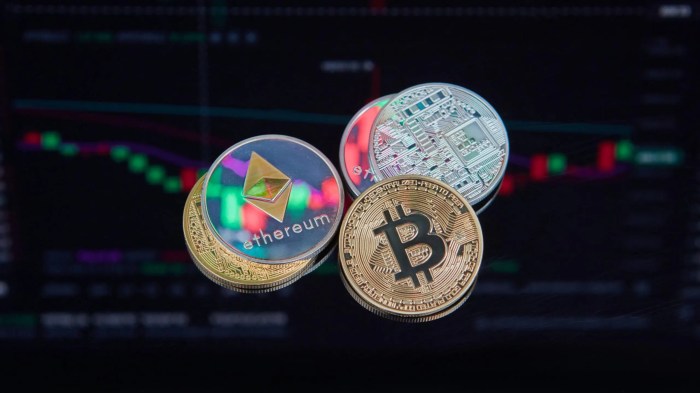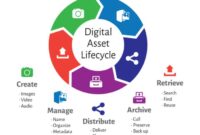How to buy cryptocurrency opens the door to a world of digital assets and financial opportunities. Dive into this guide to learn the ins and outs of navigating the crypto market with confidence and ease.
Research and Education
Before buying cryptocurrency, it is crucial to conduct thorough research and educate yourself about the market. This will help you make informed decisions and avoid potential pitfalls.
Statistical analysis software has revolutionized the way data is analyzed and interpreted. These tools offer advanced capabilities for processing large datasets and extracting meaningful insights. By leveraging statistical analysis software, businesses can make data-driven decisions with confidence. To explore more about how Statistical analysis software is Revolutionizing Data Analysis, click here.
Reliable Sources for Learning
- Official Websites: Visit the official websites of different cryptocurrencies to get accurate and up-to-date information about their technology, team, and roadmap.
- Whitepapers: Read the whitepapers of cryptocurrencies to understand their underlying technology, use case, and vision.
- Online Forums: Engage with the crypto community on platforms like Reddit, BitcoinTalk, and Discord to get insights and opinions from experienced traders and investors.
- News Outlets: Follow reputable cryptocurrency news websites like CoinDesk, CoinTelegraph, and Decrypt for the latest market updates and analysis.
Role of Education in Making Informed Decisions
Education plays a crucial role in navigating the volatile and complex crypto market. By learning about blockchain technology, market trends, and investment strategies, you can make informed decisions and mitigate risks.
Key performance indicators (KPIs) are vital for measuring success across different industries. These metrics provide valuable insights into the performance and effectiveness of business strategies. By tracking KPIs, organizations can assess their progress towards achieving goals and objectives. To delve deeper into how KPIs are Measuring Success Across Industries, click here.
Choosing a Cryptocurrency Exchange
When it comes to buying cryptocurrency, choosing the right exchange is crucial. Factors such as fees, security, and the variety of coins available can significantly impact your trading experience.
Comparing Cryptocurrency Exchanges
- Fees: Different exchanges have varying fee structures, including trading fees, withdrawal fees, and deposit fees. It’s essential to compare these fees to find an exchange that aligns with your budget.
- Security: Look for exchanges that prioritize security measures such as two-factor authentication, cold storage for funds, and a good reputation for handling security incidents.
- Available Coins: Some exchanges offer a wide range of cryptocurrencies to trade, while others may have a limited selection. Consider the coins you are interested in and choose an exchange that supports them.
Signing Up for a Cryptocurrency Exchange Account, How to buy cryptocurrency
Step 1: Choose a reputable exchange based on your research.
Step 2: Visit the exchange’s website and click on the “Sign Up” or “Create Account” button.
Step 3: Fill out the required information, including your email address, password, and any verification steps.
Step 4: Verify your email and set up additional security measures like two-factor authentication.
Step 5: Deposit funds into your account using the provided deposit methods.
The Importance of Choosing a Reputable Exchange
- Security: Reputable exchanges prioritize security, protecting your funds and personal information from potential cyber threats.
- Reliability: Established exchanges with a good reputation are less likely to face technical issues that could disrupt your trading activities.
- Customer Support: Reputable exchanges usually offer responsive customer support to address any concerns or issues you may encounter.
Setting Up a Digital Wallet

When dealing with cryptocurrencies, a digital wallet plays a crucial role in securely storing your assets. This digital wallet serves as a virtual bank account where you can store, send, and receive various cryptocurrencies.
When it comes to analyzing trends in data, understanding the importance, methods, tools, and challenges involved is crucial for making informed decisions. Trend Analysis plays a significant role in various industries, guiding businesses towards future success. By utilizing the right tools and methods, organizations can extract valuable insights from data trends. To learn more about Trend Analysis Importance Methods Tools and Challenges, click here.
Types of Digital Wallets
There are several types of digital wallets available, each with its own set of features and security measures:
- Hardware Wallets: These wallets store your cryptocurrency offline on a physical device, providing the highest level of security.
- Software Wallets: These wallets are applications or software programs that can be installed on your computer or mobile device.
- Web Wallets: These wallets are accessible through a web browser and are convenient for easy access to your funds.
- Mobile Wallets: These wallets are apps specifically designed for mobile devices, allowing you to manage your cryptocurrencies on the go.
How to Set Up a Digital Wallet
Setting up a digital wallet is a straightforward process that involves the following steps:
- Choose a reputable digital wallet provider that aligns with your needs and preferences.
- Download and install the digital wallet software or app on your device.
- Follow the instructions provided by the wallet provider to create a new wallet.
- Generate a secure password and backup your wallet’s recovery phrase or private key.
- Once your wallet is set up, you can start transferring your purchased cryptocurrencies into the wallet for safe storage.
Making the Purchase: How To Buy Cryptocurrency

When it comes to buying cryptocurrency, there are several important factors to consider. From payment methods to securing your investment, each step plays a crucial role in the process.
Accepted Payment Methods
Most cryptocurrency exchanges accept various payment methods to purchase digital assets. Some of the common payment options include:
- Bank transfers
- Credit/debit cards
- PayPal
- Cryptocurrency deposits
Placing an Order on an Exchange
Once you have selected a cryptocurrency exchange and funded your account, the process of placing an order involves the following steps:
- Choose the cryptocurrency you want to buy
- Enter the amount you wish to purchase
- Select the type of order (market order or limit order)
- Review and confirm your purchase
Securing Your Purchase
It is crucial to take steps to secure your cryptocurrency purchase and protect your investment. Some tips to enhance security include:
- Use a hardware wallet to store your digital assets offline
- Enable two-factor authentication on your exchange account
- Regularly update your antivirus software and ensure your devices are secure
- Avoid sharing sensitive information or passwords with anyone
Storing and Securing Cryptocurrency

When it comes to cryptocurrencies, securely storing your assets is of utmost importance to prevent hacks and theft. Unlike traditional bank accounts, cryptocurrencies are not insured, making security measures crucial in safeguarding your investments.
Types of Wallets for Storing Crypto Assets
There are three main types of wallets available for storing cryptocurrencies: hardware wallets, software wallets, and paper wallets. Each type offers different levels of security and convenience.
- Hardware Wallets: Hardware wallets are physical devices that store your private keys offline, making them less vulnerable to online attacks. They are considered one of the most secure options for storing large amounts of cryptocurrency.
- Software Wallets: Software wallets are applications or programs that can be installed on your computer or mobile device. While convenient for accessing your funds on-the-go, they are more susceptible to hacking compared to hardware wallets.
- Paper Wallets: Paper wallets are physical copies of your private keys or seed phrases printed on paper. They are considered one of the most secure options as they are not connected to the internet, but they can be easily damaged or lost.
Best Practices for Securing Your Cryptocurrency Investments
Protecting your cryptocurrency investments requires implementing best practices to minimize the risk of hacks and theft. Here are some tips to keep your assets safe:
- Use strong and unique passwords for all your cryptocurrency accounts.
- Enable two-factor authentication (2FA) whenever possible to add an extra layer of security.
- Regularly update your wallet software to patch any vulnerabilities.
- Avoid sharing your private keys or seed phrases with anyone.
- Consider using a combination of hardware and software wallets for added security.
- Store backup copies of your wallet information in secure locations.
- Be cautious of phishing scams and only use official websites or trusted sources for transactions.
In conclusion, mastering the art of buying cryptocurrency is not just about making transactions, but also about understanding the market dynamics and securing your investments. Take the plunge into the world of digital currencies armed with knowledge and vigilance.




